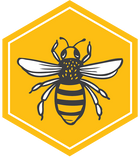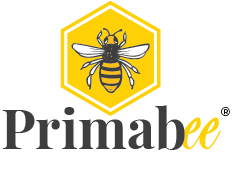Is CBD Addictive?

CBD's popularity has exploded, and now the famous cannabinoid is available in numerous forms at nearly every type of store. It's challenging not to try such a trending product when you are surrounded by CBD products and enthusiasts speaking grandly about CBD's effects.
Buying CBD is now super easy, and you can grab one even from the shelf at the local supermarket. Still, before you try the famous cannabinoid, you might be concerned whether it can get you hooked up, especially if you have had a problem with substance abuse.
What is CBD?
CBD is a cannabis-derived compound that derives from marijuana's non-psychoactive relative plant hemp. CBD is one of the two most abundant cannabinoids in cannabis, along with THC. The latter is the reason for marijuana's euphoric effects; however, hemp has only trace amounts of THC; thus, it's not psychoactive. THC is responsible not only for marijuana's high but its addictive potential due to its psychoactive properties. However, unlike THC, CBD is non-psychoactive, and it affects the human body and mind without inducing any mind-altering symptoms like THC.
The National Institute on Drug Abuse in 2018 released news on the study examining CBD's potential to enable drug addiction recovery and reported it might help reduce the risk of alcohol and drug relapse.
How Does CBD Affect the Human Body?
CBD is a plant-based cannabinoid, and as it turns out, humans produce cannabinoids too! In 1992 researchers at Mechoulam's lab isolated the first endocannabinoid and discovered a new system in animals – the Endocannabinoid System (ECS). The newly discovered system plays a role in numerous bodily functions, including memory, pain, sleep, stress responses, and homeostasis. It is a network of cell receptors working by endocannabinoids activating ECS receptors in the body and sending signals between nerve cells. All humans (and all animals) have the ECS with different amounts of endocannabinoids in the body.
Cannabinoids like CBD are very similar to endocannabinoids, so once consumed, they also affect ECS receptors. Unlike THC, CBD doesn't bind to ECS receptors and doesn't cause psychoactive side effects.
Is CBD Addictive?
Don't worry if CBD concerns you about becoming your next or first drug abuse story. CBD is not a drug nor an addictive ingredient.
Being addicted to drugs means you can't resist the urge to consume them regardless of the side effects and damage to your health. That's because you like how they make you feel and help you escape reality or pain.
However, CBD is a different story. Firstly because it's not classified as a drug – it's a natural compound. Secondly, regardless of how much CBD you use, it'll not cause mind-altering symptoms and side effects.
Unlike THC, people use CBD not for euphoric feelings or getting high (there's no possibility of getting high on CBD (unless mislabeled). And even when you take CBD in high doses, it won't bind to ECS receptors and might not produce noticeable immediate effects. CBD consumers take cannabidiol daily in specific amounts, usually for overall balance. When someone stops taking CBD, it's unlikely to experience withdrawal symptoms as you'd experience from nicotine.
The World Health Organization in the Cannabidiol (CBD) critical review report stated no known addiction potential linked to CBD.
"In humans, CBD exhibits no effects indicative of any abuse or dependence potential."
The study in 2020 found no evidence of withdrawal syndrome with abrupt discontinuation of short-term treatment with CBD.
Is CBD Legal?
Unlike marijuana, CBD is federally legal. The 2018 Farm Bill removed hemp and its derivatives from controlled substances under the controlled substances act.
Does CBD contain THC?
The hemp plant naturally contains small, non-psychoactive THC amounts, so once manufacturers extract CBD from hemp, the extract also contains trace THC amounts. Some brands leave THC in the extract, while others refine the CBD extract and remove THC altogether.
These two categories of CBD extract are full-spectrum CBD (with THC) and broad-spectrum CBD (without THC). Per federal law in the United States, CBD products can contain no more than .3% THC, so even full-spectrum CBD products contain only the minuscular THC amounts that won't result in any psychoactive experience.
In Conclusion
While cannabis does have the potential for addiction and abuse, it's primarily because of its psychoactive properties related to THC. CBD is non-psychoactive, and it's not shown to have addictive properties and abuse potential in humans. CBD is federally legal with no more than .3% THC content and is widely available in today's wellness market.
Shop for Safe CBD Products
Although CBD itself might not pose a risk of addiction, unfortunately, not all CBD products are safe to consume. 70% of CBD labels might not indicate the correct amount of cannabinoids in the product and contain less CBD or higher amounts of THC. Choosing safe products is crucial when consuming CBD, but finding one can get challenging.
At Primabee, we offer premium and safe CBD products you can add to your routine without worrying about unwanted elements or side effects.
All our products are:
- Vegan Friendly / Gluten-Free
- Cruelty-Free
- Pet-Friendly
- Legal in All 50 States
- USA Grown / Non-GMO
- LO2NoTHC* - removing the unwanted THC and refining our CBD to remove undesired compounds like wax, chlorophyll, and plant pigments.
- 100% Satisfaction Guaranteed
- Third-party lab tested
Each batch is third-party tested, trusted, and effective.
Get started today, order Primabee products, and receive your order straight to your door for free.





Leave a comment